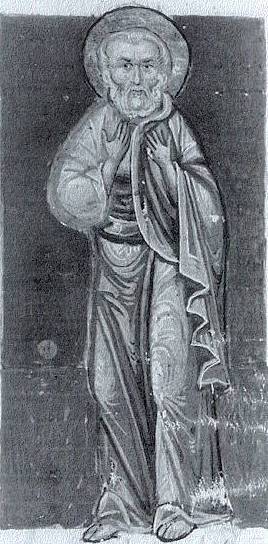.jpg/800px-Visita_del_Presidente_de_Turqu%C3%ADa_a_la_Canciller%C3%ADa_del_Per%C3%BA_(24663516722).jpg)
I just finished reading "Turkiets historia" (The History of Turkey) by Ingmar Karlsson. Although the author is a former Swedish diplomat, the book is mostly a popularized account of Ottoman and modern Turkish history, rather than a sensational tell-it-all about Mideast conspiracies. The book was published in 2015, and therefore doesn´t mention the 2016 coup attempt against Erdogan. If the book has a political tendency, it´s "pro-European" and argues that "Turkey is part of Europe". This is ironic, since anyone reading it would surely draw the opposite conclusion: that Ottoman, Turkic or Turkish civilization, whatever else it might be, is very definitely *not* European, but another planet entirely. Karlsson tries to blame France and Germany (and perhaps Cyprus) for the failure of EU to integrate a very willing and pro-EU Turkey, but its obvious from his account that most Turks always opposed secular Kemalism and prefer conservative Islam combined with Turkish nationalism. While Kemal Atatürk, the father of modern Turkey, was indeed very positive towards the latter, he actively opposed the former. The entire history of modern Turkey is really the history of the religious elites and "the silent majority" to break away from all or most of Kemalism´s six founding principles. Erdogan and the AKP are simply the latest example, and the most succesful. Yes, Erdogan used to be pro-EU, but in hindsight, his hybrid of Islamism, Turkish nationalism and "Neo-Ottoman" foreign policy ambitions sound much more politically logical than a Turkey modernized around Northwest European lines (let alone "woke" ones).
Karlsson´s book starts out with several chapters on Ottoman history, unfortunately rather distracted ones, as he jumps back and forth in the chronology, never mentions the Bektashi order, says very little about the slave trade, and at one point writes "Russian" when he really means "Ottoman". He also resurrects Bayezid after his captivity and death at the hands of Timur Lenk! Still, the chapters *are* interesting, especially if you think "Islam" and "Christianity" are necessarily in conflict with each other. Realpolitik (and, shall we say, Real-commerce) frequently trumps both the jihad and the crusading spirit. Both Venetians and the Genoese frequently aided various Ottoman factions in their power struggles. France had an outright military alliance with the Ottoman Empire against the Habsburgs. One of the reasons why the Protestant Reformation succeeded may have been Ottoman pressure on the Habsburg domains in Central Europe, which forced the Catholic emperors to compromise with the Protestant princes. For a long time, Orthodox Christians (outside Russia) preferred the Muslim crescent to the Catholic crusaders. So did the Jews! And yes, our very own warrior-king extraordinaire, Karl XII, tried to ally Sweden with the Porte against Russia.
It´s interesting to note that the conflict between modernizers and traditionalists existed already during Ottoman times, in earnest from the 19th century, but to some extent already during the 15th century. The famous portrait of Mehmed Fatih, the conqueror of Constantinople, was made by an Italian and sold by Mehmed´s successor Bayezid II, who regarded portrait painting as anti-Muslim. That´s how the portrait eventually ended up in the United Kingdom! Another thing that seems to be "same old, same old" is the idea of an imperialist "humanitarian intervention". This wasn´t something invented during the 1990´s (which many leftists seem to think). As early as 1827, the great powers intervened (with the best of intentions, obviously) to aid the Greeks against the Ottomans. Next in line was an intervention to aid the Bulgarians. Karlsson points out that nobody cared much about the Turks ethnically cleansed from the Balkans due to these great power interventions. (Of course, an alternative interpretation - equally unpalatable to modern wokesters - is that *Russia* was the great liberator of the Balkan peoples from the sick man at the Bosphorus.)
While Karlsson (of course) opposes the Armenian Genocide, he also makes a valiant (and perhaps slightly controversial) attempt to place it in context. Armenians were a minority in "Ottoman Armenia", and actively supported the Russians during World War I, while the Ottoman Empire fought on the German side. Karlsson also notes that the Kurds actively supported the Turks in the attacks on the Armenians. Later, the Kurds themselves would be oppressed by the new Turkish regime. Thanks to Kemal Atatürk´s military campaigns, Turkey was the only losing power in World War I that succesfully challenged the diktats of the victorious Entente, which in the Turkish case would have meant near-dismemberment. I can´t help thinking that Karlsson might have *some* kind of pro-Turkish sympathies! His description of the Cyprus conflict is also very "objective".
As for modern Turkey, I have already commented on the Kemalist-Islamist conflicts. It´s interesting to note that Erdogan and other Islamist politicians in Turkey tend to be economically neo-liberal, not left-of-center, while in practice combining neo-liberalism with a kind of crony capitalism. Either way, the Islamists seem to be based on a seemingly unnatural alliance of a neo-liberal bourgeoisie and a vast plebs of religiously conservative peasants or underemployed ex-peasants in the large cities. I´m not entirely sure how this alliance can hold together - Karlsson seems to suggest that the Sufi orders play an important role here as clientelistic networks aiding but also incorporating the poor in the Islamist project (Westerners with an over-romantic view of Sufis may take note here). Erdogan seems to be the Bonaparte or great leader of said project.
The role of the Gülen movement is unclear to me. They claim to stand for a kind of Muslim modernization and democratization of Turkey, and rather obviously seek Western support (Gülen lives in the United States), but how do we really know this? Gülen´s supporters were long allied with Erdogan and strongly oppose Kemalism. Are their modernizing stances just a form of taqyyia? Interestingly, they are strong Turkish nationalists and hence opposed to Kurdish independence.
Personally, I strongly favor secularism and Western modernization (thank you!), but Turkey seems to be another example of the fact that Occidental modernity really isn´t the teleological or otherwise inevitable end point of human political evolution, or even of capitalism. Islam grows stronger, the more capitalist and/or democratic Turkey becomes, not always as a counter-reaction but *in alliance* with the modern forces. Yet, this is not a "modernist Islam", but a conservative form married to a bourgeoisie and even elements of globalization! (In a different way, China is another example of "two, three, many modernities".) While Turkey isn´t "Europe", it is a bridge between East and West, but not in a way easily recognizable by people with a Western mindset. What should be done about this, if anything, is perhaps an interesting question. Above all, Turkey is simply Turkish...



_warriors_posing_with_penis_gourds_and_spears%2C_New_Caledonia.jpg)





.jpg)

.jpg/800px-Visita_del_Presidente_de_Turqu%C3%ADa_a_la_Canciller%C3%ADa_del_Per%C3%BA_(24663516722).jpg)
.jpg)